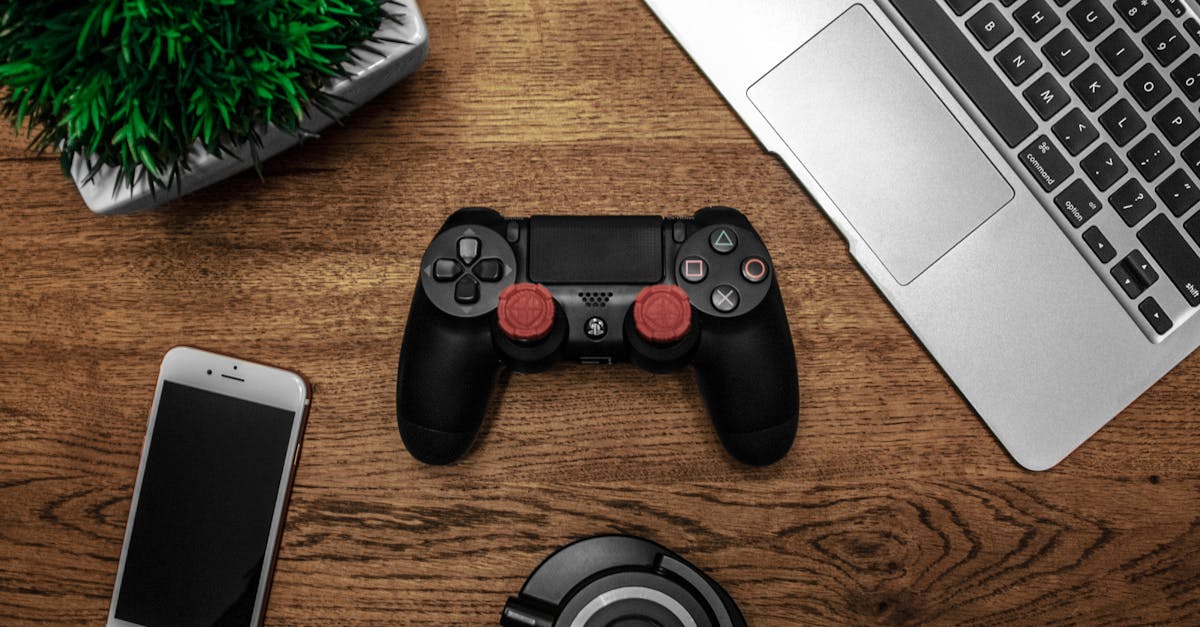
Laptops For Game Development
- October 08, 2024
- 5 min Read
- Views 331
Laptops for Game Development
The world of game development is expansive and continuously evolving, requiring developers to have the right tools to keep up with its demands. A crucial component of any developer’s toolkit is their laptop. Laptops for game development are not just about portability; they need to pack a punch in terms of power, graphics, and speed. Choosing the right laptop for game development can make a significant difference in your workflow, productivity, and final product quality.
Understanding the Requirements
Game development is a resource-intensive task that demands a robust hardware configuration. The best laptops for game development typically feature high-performance processors, ample RAM, and dedicated graphics cards. These components work in unison to ensure that developers can effectively run and test their games, manage large files, and multitask without lag.
The processor of a laptop acts as its brain. For game development, a multi-core processor with a high clock speed is paramount. Processors such as Intel’s i7 or i9 series, or AMD’s Ryzen 7 or 9, are often recommended due to their performance capabilities.
The role of RAM cannot be understated as it determines the laptop's ability to handle multiple applications simultaneously. For game development, at least 16GB of RAM is advisable, though many professionals opt for 32GB to future-proof their systems and accommodate more demanding tasks.
A dedicated graphics card is essential for handling the complex graphics and rendering tasks involved in game development. NVIDIA’s GTX or RTX series, or AMD’s Radeon, offer considerable options that can cater to different budget levels and performance needs.
Recommended Laptops for Game Development
Selecting the best laptops for game development involves finding a balance between performance and budget. Here are some recommended laptops categorized based on their performance capabilities and price:
- High-End Option: Razer Blade 15 Advanced – This laptop combines portability with performance, featuring a NVIDIA GeForce RTX 3080, an Intel i9 processor, and up to 32GB of RAM, making it ideal for AAA game development tasks.
- Mid-Range Option: MSI GS66 Stealth – Offering a good balance between price and power, this laptop includes a NVIDIA GeForce RTX 3060, an Intel i7 processor, and 16GB of RAM, suitable for most game development needs.
- Budget-Friendly Option: Acer Nitro 5 – With an AMD Ryzen 7 processor and NVIDIA GTX 1650, along with 8GB of RAM (expandable), it provides a solid starting point for indie developers or those on a tight budget.
Factors to Consider Before Making a Purchase
Before purchasing a laptop for game development, consider additional factors beyond raw specifications:
- Display Quality: A high-resolution display with accurate color reproduction is vital for developers focusing on graphic-intensive tasks. A 1080p is standard, but 4K displays offer sharper visuals.
- Portability: If you are constantly on the move, consider the weight and battery life of the laptop. Ultrabooks might offer better battery life but often compromise on power.
- Storage: SSDs (Solid State Drives) are crucial as they drastically reduce load times and enhance system responsiveness. Ensure the laptop offers at least 512GB of SSD storage, with options for expansion.
- Heat Management: Game development can heat up the laptop quickly, so effective cooling solutions are paramount to ensure performance isn't throttled due to overheating.
Guide: Choosing the Right Laptop for Game Development
- Assess Your Needs: Determine the scale and scope of your projects. AAA game development will require higher specs compared to indie games.
- Set a Budget: Allocate a budget for your purchase. Prioritize components that cannot be easily upgraded, like the processor and graphics card.
- Check Compatibility: Make sure the laptop can run the software and development tools required for your game design, such as Unity or Unreal Engine.
- Read Reviews: User reviews can provide insight into real-world performance and any potential issues not apparent from specifications alone.
- Future-Proofing: Consider investing in a laptop with upgradable RAM and storage to ensure it meets future demands.
FAQ
Q: Can a regular laptop handle game development?
A: While it’s possible for a regular laptop to manage basic game development tasks, it's often less efficient due to limitations in graphics and processing power.
Q: Is an external GPU a viable option for game development on laptops?
A: Yes, using an external GPU can enhance graphic capabilities significantly. However, such setups may not be as portable and can add to the overall expense.
Q: How much storage is required for game development?
A: A minimum of 512GB SSD is recommended, though larger projects might necessitate additional storage solutions like external drives.
Q: What operating system is best for game development laptops?
A: Both Windows and macOS are popular among developers, though specific game engines and tools may have preferences or limitations. Windows often offers broader compatibility.
Tags: Laptops for game development, best laptops for developers, game development tools, graphics card for laptops, high-performance laptops
References:
People Also View
-
1
Comparison of online subscription services for groceries in the US
October 05, 2024 -
2October 05, 2024
-
3September 30, 2024
-
4September 30, 2024
-
5October 07, 2024
Categories
- Near Me 2147 Posts
- How To 548 Posts
- Where To 257 Posts
- Why 90 Posts
- How Much 97 Posts
- Travel 202 Posts
- Food And Drink 815 Posts
- Shopping 797 Posts
- Lifestyle 1050 Posts
- Automotive 364 Posts
- Digital Income 70 Posts








